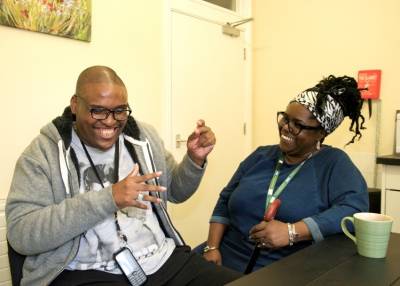BID: A Pilot randomised controlled trial of one to one Befriending by volunteers, compared to Usual Care, in reducing symptoms of depression in people with Intellectual Disability
 Background
Background

Intellectual disability (ID) is a life-long condition characterised by an Intelligence Quotient (IQ) below 70 and impaired adaptive functioning, arising before the age of 18. People with intellectual disability experience social exclusion because of stigma and compared to the general population they have smaller social networks and a higher prevalence of loneliness. These factors have been associated with depressive symptoms in this group. Despite experiencing high rates of depression, people with intellectual disability often experience behavioural side effects from antidepressants and inequalities in accessing psychological therapies. In addition, the evidence base for the effectiveness of psychological treatments for depression for people with intellectual disabilities is limited. Therefore, there is a need to consider alternative accessible interventions and befriending interventions have shown promise. Befriending has been found to have some beneficial effects on depression but at present there are no published trials on the impact of befriending on depressive symptoms in people with intellectual disability.
Aims and objectives
The main aim of the study is to assess the recruitment rate of participants, the number of successfully matched pairs and the drop-out rate of individuals with intellectual disability and volunteers. We will also examine the effects of befriending on symptoms of depression in people with intellectual disability, as well as other outcomes such as self-esteem, loneliness and quality of life, and will examine the impact of befriending on volunteers such as their wellbeing and attitudes towards people with intellectual disability.
Who can participate?
Participants with intellectual disability:
Individuals aged 18 and over with mild or moderate learning disability, who have a score of five or more on the Glasgow Depression Scale for people with Learning Disability (GDS-LD), can provide informed consent and are not attending education/day service more than two days a week.
Volunteers:
Individuals aged 18 and over, who can agree to be available once a week for at least an hour over a six month period and do not have a criminal record.
 Close
Close

